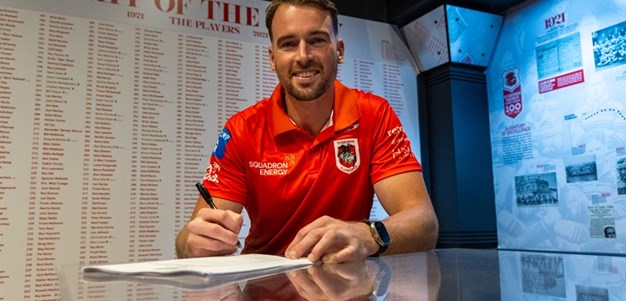
Injuries are a part of rugby league – things won't always go according to plan in a competition that hits as hard as the NRL – and the psychological effects of injury have been well documented.
With clubs looking to get the best out of their players, they are increasingly turning to sports psychologists to help players recover mentally as well as physically.
The term most associated with the players who make successful returns from injury is 'resilience'. An ability to bounce back; to pick yourself up, brush yourself off and get back to the level you were playing at pre-injury through hard work and persistence.
Dr Joann Lukins is the first sports psychologist to have worked at the North Queensland Cowboys, having started at the club in 1996. Lukins is an expert in the mental aspect of helping players return from injury, and says perspective is one of the key ingredients that goes into a successful return from a stint on the sidelines.
"The biggest part for people in moving on whenever anything happens… is you can't move on until you accept the situation that you're in. Which doesn't mean you have to like the situation that you're in," Dr Lukins said.
"If you don't accept it, if you're in denial, then you won't do the things that you need to do to help yourself moving forward.
"The biggest challenge for anyone in these kind of situations is to accept it without having to like it and then that puts you in a position to try and put it into perspective."
Dr Lukins is well regarded by everyone at the Cowboys, and when she speaks about the psychological effects of injury it's easy to see why. She helps players take their recovery a step further, using the experience to assess what went wrong and how they can improve when they return.
"[Injury] is also about people understanding that it's a difficult pathway to go through, but once it's happened it's happened," she said.
"The sooner you can bounce forward – not even bouncing back – how can you grow from the experience how can you learn from it? What can you take from this moving forward that will make you wiser next time?
"That's probably the most helpful way to move forward when you've been through some form of disappointment."
Competitive athletes assess their performance on a weekly basis; the need to know where you can improve after a win or a loss is obvious at such a high level of play.
According to Dr Lukins the same theory applies to an injured player – self-assessment is the best way they can improve when the make their return.
"The bit you can't control is what happens to you and once the injury has happened it's happened, so the only element you can control moving forward is what you do about it and that's when you can shift your focus," she said.
"Find something to do. If there is something for you to do, and there usually always is, that's where there's the opportunity for growth.
"I think what injury does is it holds a mirror up to your face and gives you a whole range of perspective."



